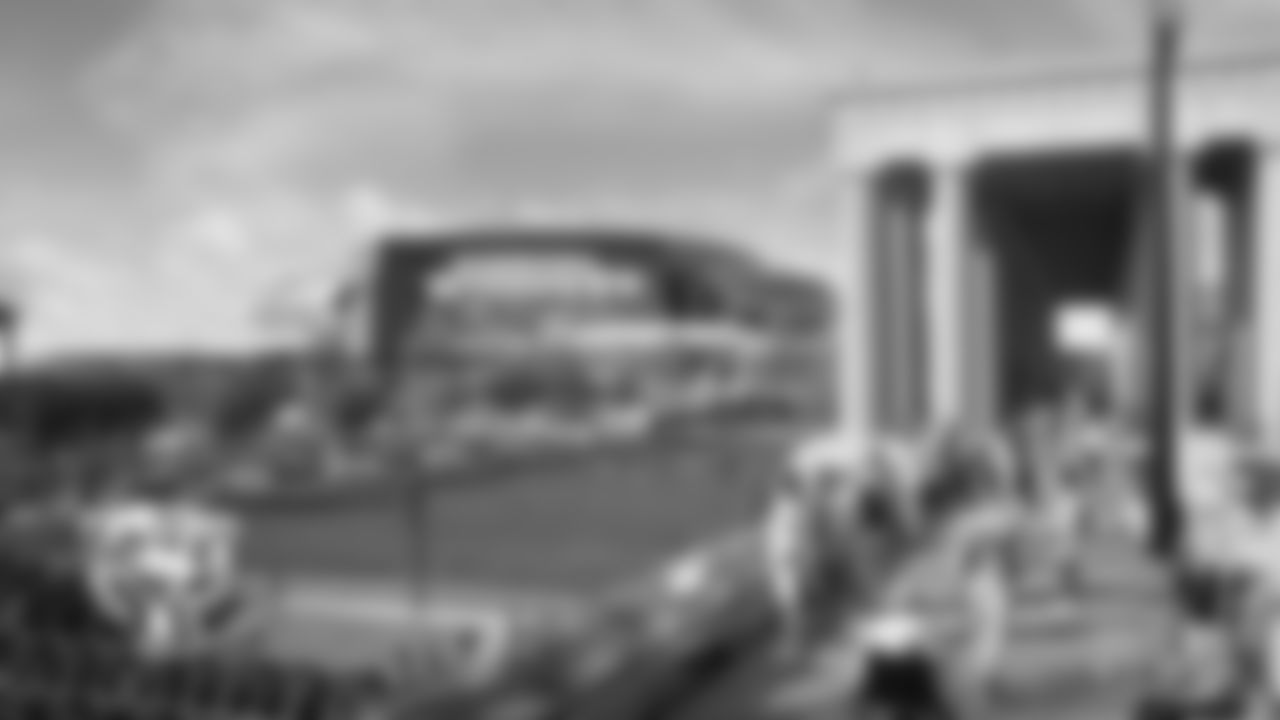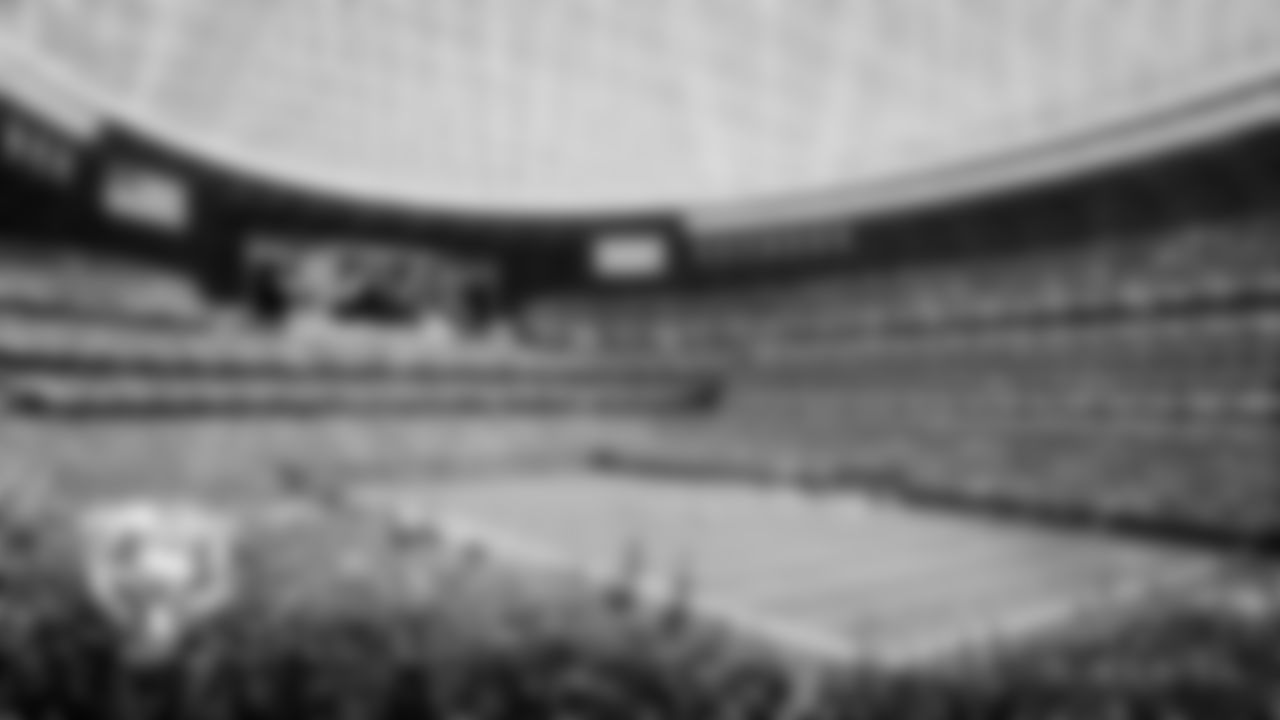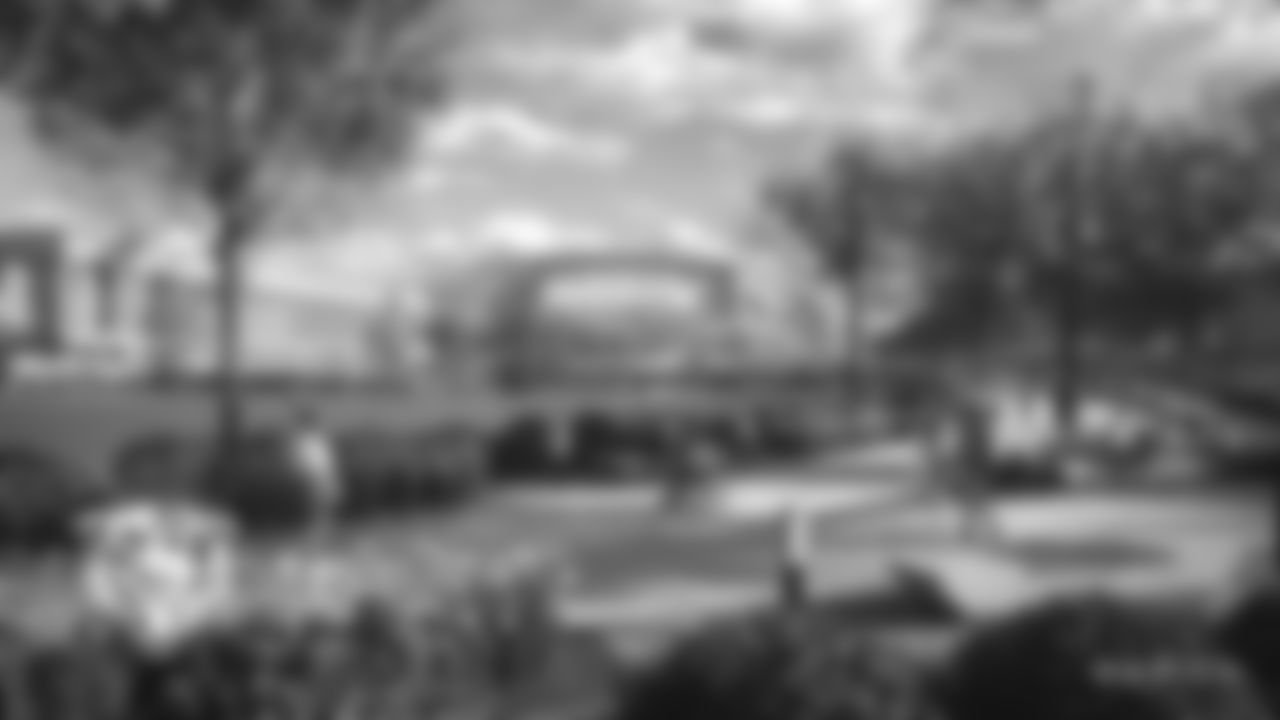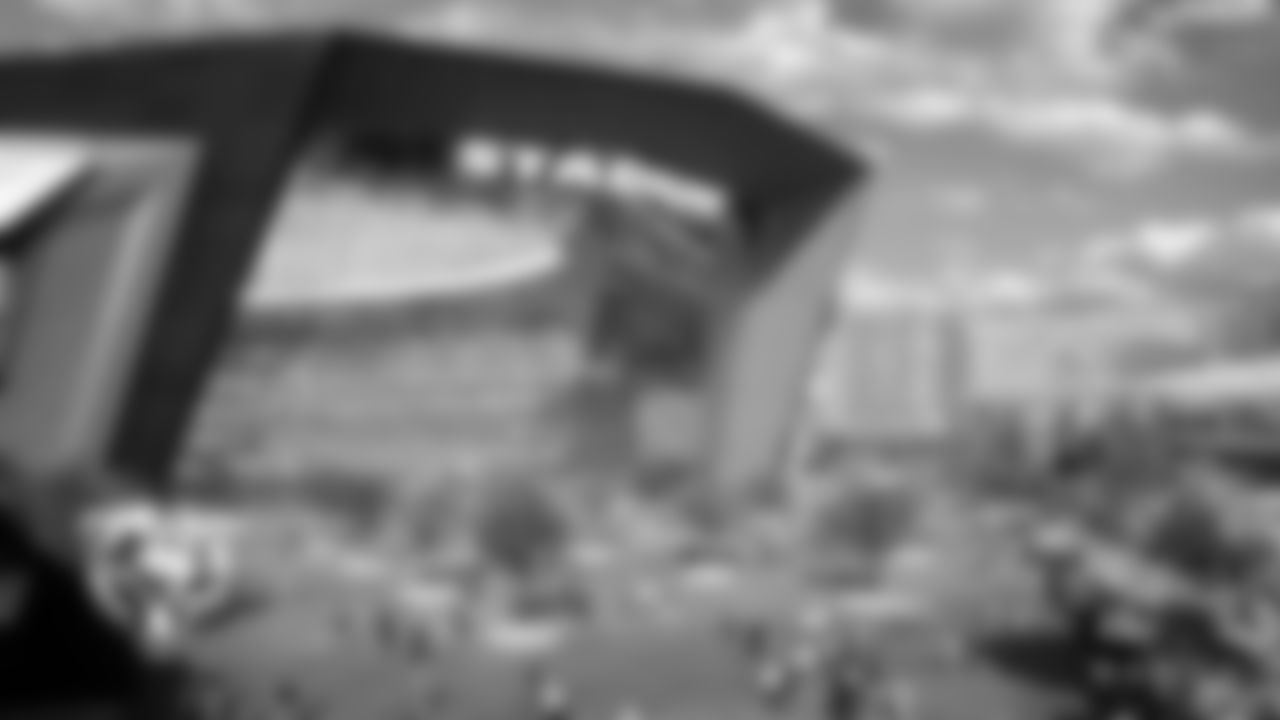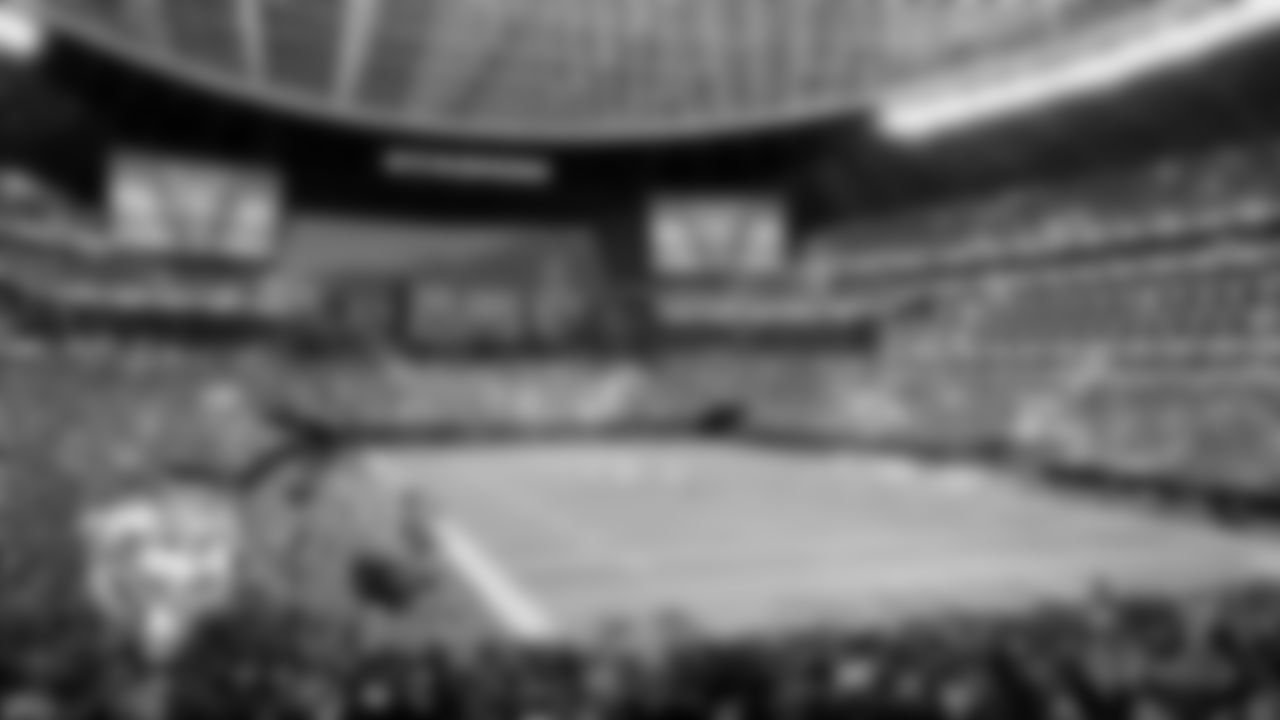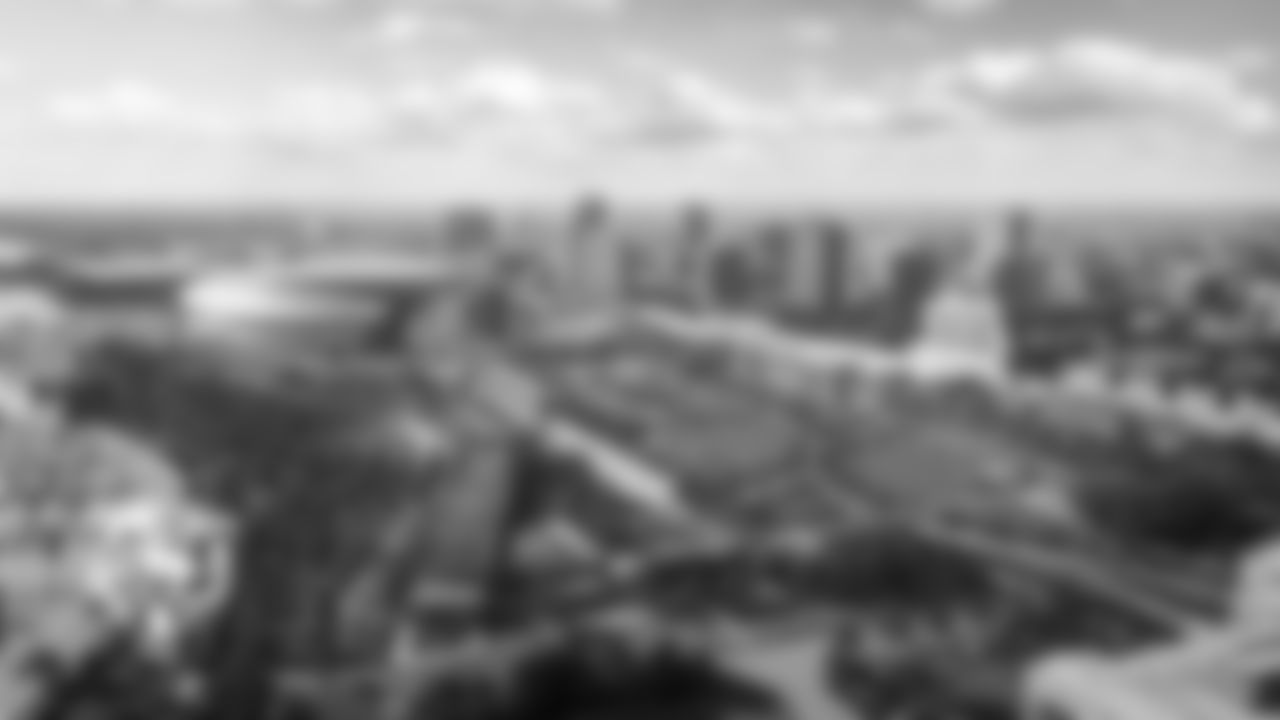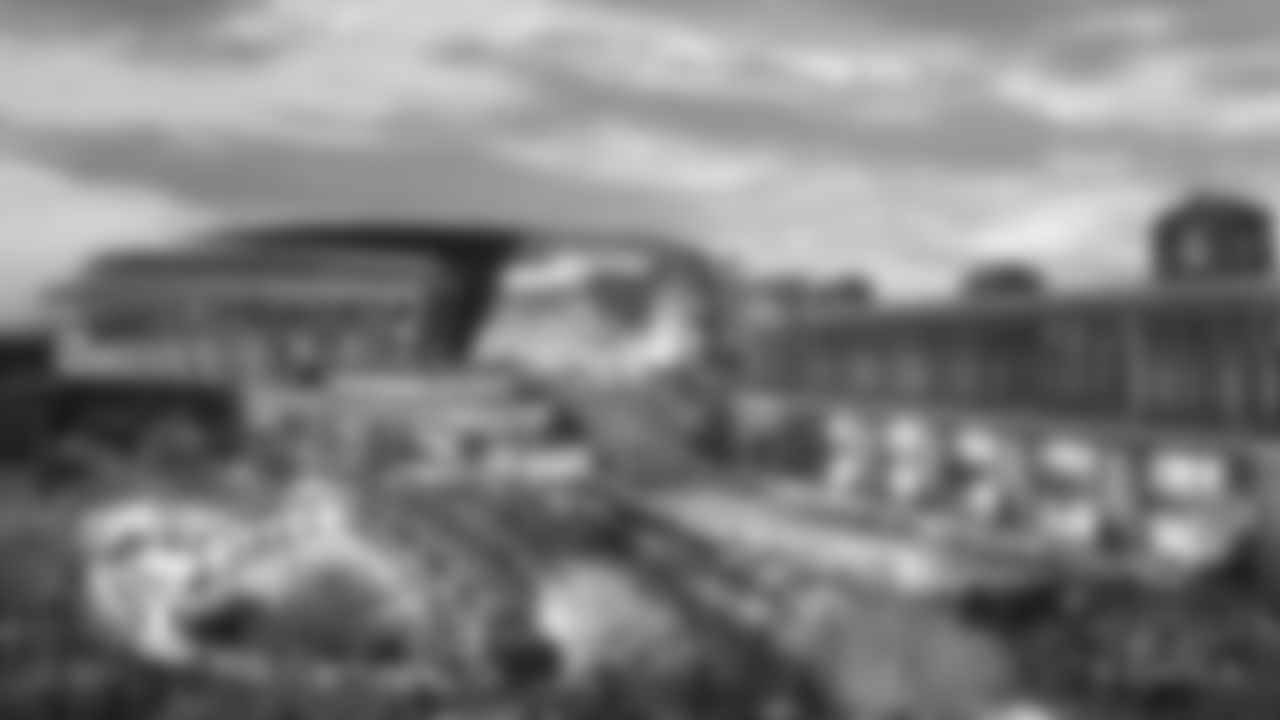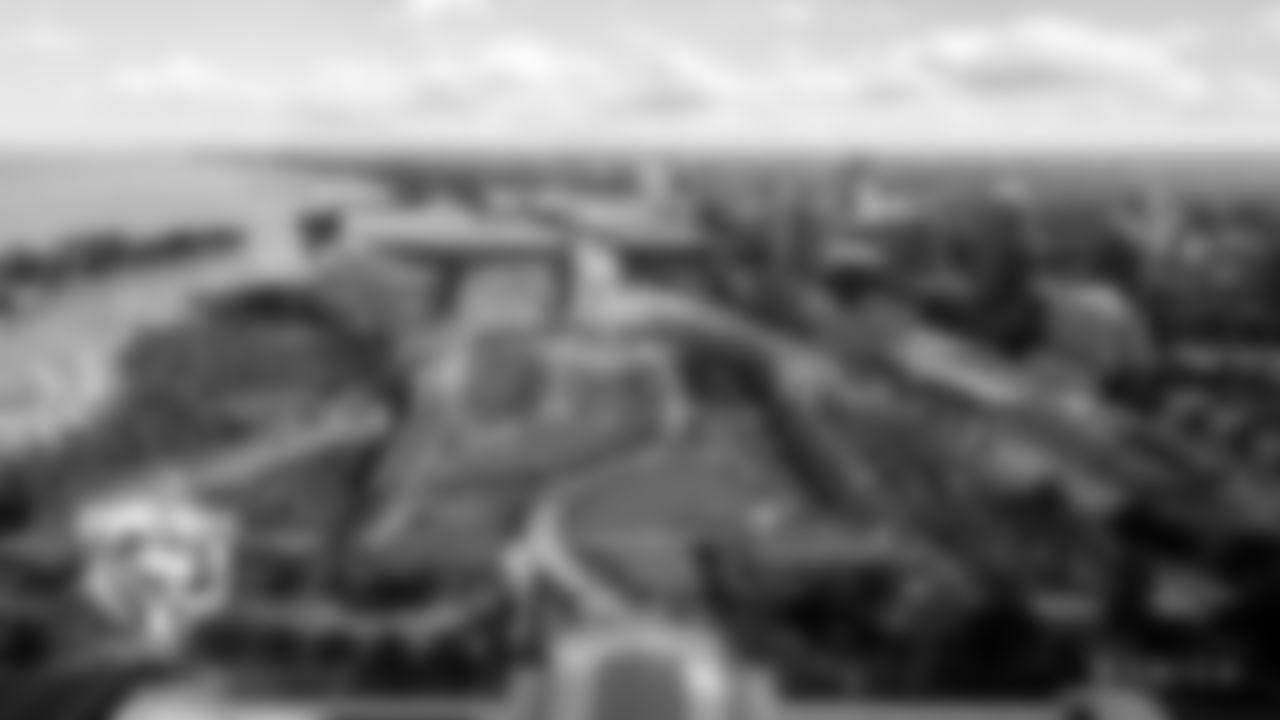During a public presentation Wednesday at Soldier Field, the Bears unveiled their plans to build a state-of-the-art fixed-roof stadium along Chicago's lakefront.
The Burnham Park Project includes a new publicly-owned multipurpose replacement stadium located just south of Soldier Field that's part of a singular year-round hub centered on park-based culture and recreation.
"This is an incredibly, incredibly special day for the Chicago Bears," said Bears President and CEO Kevin Warren, "for the City of Chicago, for the state of Illinois, for our ownership, for our players, for our coaches, for our staff members, for the alumni and for our incredible Chicago Bear fans.
"Today is about progress, and one of the things that I am most excited about today is the fact that this shows that in this city we have the intellectual capabilities, we have the heart, we have the passion, we have the foresight, we have the wisdom, we have the vision to do big things."
The proposal boasts year-round use for recreational and community events and an increase in open and green space, including 14 acres of athletic fields and recreational park space for use by public and youth sports programs. The athletic fields would provide a high-quality, safe place for the city's youth, especially those from nearby underserved neighborhoods, to gather and play sports.
Visitors would be able to enjoy the lakefront via indoor and outdoor experiences. The plan features a three-acre promenade and plaza area which could include year-round food and beverage outlets, retail shops, a cultural attraction focused on sports and Soldier Field history. A publicly-owned hotel could also be included on the recreation and cultural campus.
The new stadium would continue the tradition on a site that has hosted Chicago's major civic, entertainment, sports and cultural events for 100 years.
"The Bears have been proud to call Chicago home for more than 100 years," said Bears chairman George H. McCaskey. "Perhaps no other sports team embodies the character of the city it represents better than the Bears and Chicago. Our founder, George Halas, emphasized the importance of being a champion for Chicago. This has been part of the foundation of our organization. That is why we are excited to invest in the greatest city in the world through a stadium project and site improvements that will benefit Chicagoans and visitors."
The proposal includes a contemporary architectural design which complements the existing architecture featuring an enclosed, fixed roof; spectacular views of Chicago's skyline and lakefront; intimate seating for unparalleled sight lines and open spaces for congregating.
The stadium would be capable of hosting large-scale sporting events year-round, including Super Bowls and NCAA Final Fours as well as the world's most prominent entertainment acts. Those spectacles would unlock economic benefits for a variety of sectors within Chicago and the region, evidenced in part by the estimated $6.6 billion in direct fiscal tax impact produced nationwide in 2021 by the sports tourism sector of the economy, according to Sports Business Journal.
Recent Super Bowls have reportedly generated $1.3 billion for Arizona in 2023, $234-478 million for Los Angeles County in 2022 and $572 million for South Florida in 2020. Recent Final Fours have produced $270 million for Houston in 2023, $106 million for Louisiana in 2022 and $80-100 million for Indianapolis in 2021.
"This is a beautiful day for the City of Chicago," said Chicago Mayor Brandon Johnson. "It really is, and as a lifelong Bears fan, it is an honor to be here to celebrate the Bears' commitment to remaining the *Chicago *Bears. This is going to reinvigorate the entire City of Chicago. It would be the crown jewel of the City of Chicago, and with this new project we are showing the world what Chicago is capable of."
Other project benefits include a pedestrian mall and pavilion, a wider variety of food and beverage options, more public restrooms, and the preservation of Soldier Field's historic colonnades, which will remain accessible to fans and continue to honor the men and women who served in our nation's military.
The Bears have pledged to contribute more than $2 billion to the project—over 70% of the total stadium cost. The remaining stadium funds are proposed to come from the Illinois Sports Facilities Authority (ISFA), a government entity that was created by the Illinois General Assembly in 1987 for the purpose of constructing and renovating sports stadiums for professional teams in the state of Illinois. The Bears' proposal can be accomplished with the existing 2% hotel tax used to back ISFA bonds.
"We are committing over $2 billion into a public/private partnership that will be transcendent for the city and bring opportunities and positive outcomes to millions of people who both live in Chicago and visit Chicago," said Karen Murphy, Bears executive vice president of stadium development and chief operating officer.
The Burnham Park Project includes a commitment to Diversity, Equity and Inclusion. The Stadium Project DEI program is designed to provide equitable access and opportunities to the diverse community throughout the city and state. It includes a four-phase approach to formalize efforts to develop and implement workforce, business and community goals, standards and expectations alongside key partners from inception through completion and beyond.
The DEI plan includes the Bears formalizing partnerships with key experts and organizations, beginning with city and state governments and community-based entities representing women as well as Black and Hispanic people.
The construction of a publicly owned stadium and associated Burnham Park improvements would be one of the largest building projects in the region's history, representing $4.2 billion of direct capital investment while creating opportunities for a regional workforce.
The project would boast over $8 billion in regional construction economic impact, a $456 million annual economic impact post construction, the creation of 43,000 regional construction jobs and 4,200 permanent jobs post construction. Annual tax revenue from ongoing operations is projected to be 58% higher for the City of Chicago and 41% for the state of Illinois with the replacement stadium over the current operation of Soldier Field.
"This is a big day for the City of Chicago and our dynamic business community," said Charles Smith, vice chair of World Business Chicago. "Chicago is the best place in the world to do business. Economic development serves as an engine driving our city toward a promising future. And when executed thoughtfully, it has the potential to extend opportunities to every corner of our city."
The plan also involves the easing of traffic circulation in the area via:
- Improved ramps and interchanges at 18th Street.
- A new parking deck built on an existing surface lot.
- Improved access to DuSable Lake Shore Drive via a new overpass, relocation of a Lake Shore Drive exit and new ramps to the campus.
- A new lower level for McFetridge Drive.
The changes are expected to result in a 50% increase in campus capacity for events, a 10- to 20-minute reduction in event exit times, and 1,200 vehicle hours of congestion removed on an average day at the intersection of DuSable Lake Shore Drive and McFetridge Drive.
The infrastructure plan for the project is split into three phases. Phase 1 consists of requirements to open the stadium including transportation, roadways and utilities, and would cost an estimated $325 million. Phase 2 would maximize the stadium and surrounding campus, cost $510 million and include a bus depot expansion, new parks and playfields. Phase 3 would further enhance the campus, cost $665 million and consist of additional transportation improvements, retail and public attractions.
The Bears are aiming to break ground in the summer of 2025, with a planned grand opening in the summer of 2028.
To stay up to date on news and information regarding the stadium project, visit StadiumforChicago.com.
Take a look at the renderings the Bears have released for a publicly-owned multipurpose replacement stadium located just south of Soldier Field.
